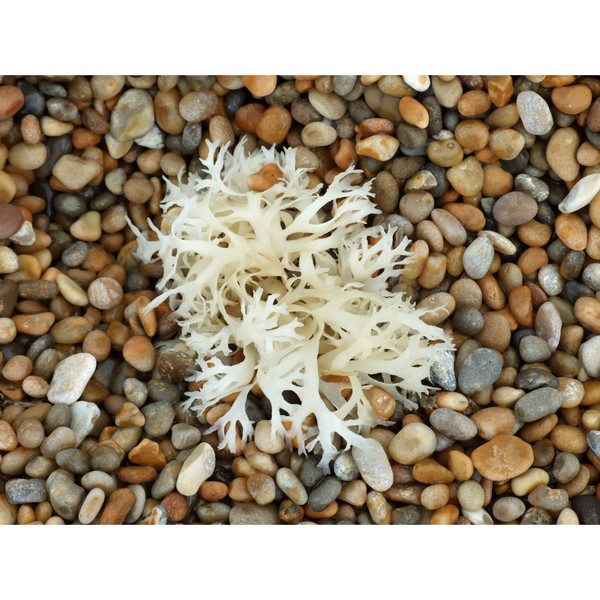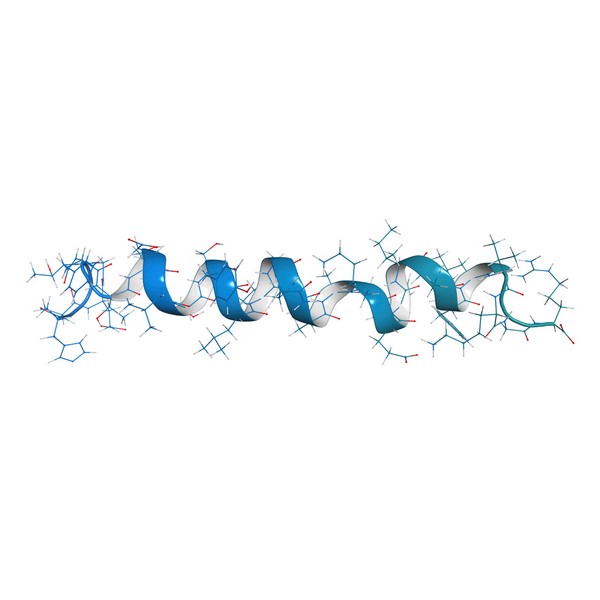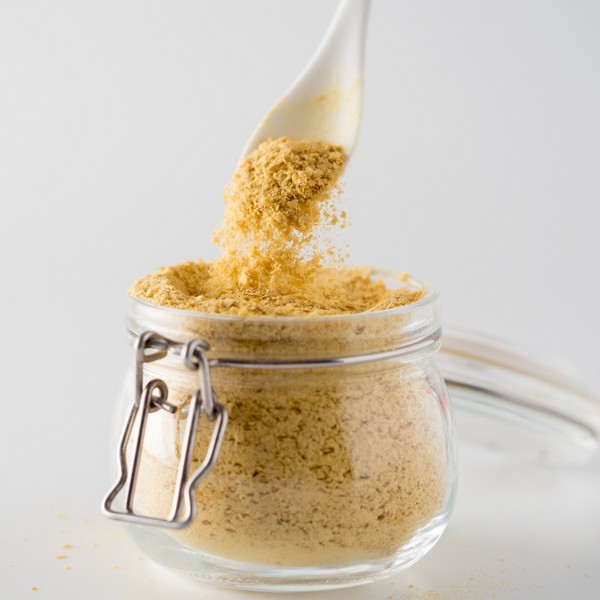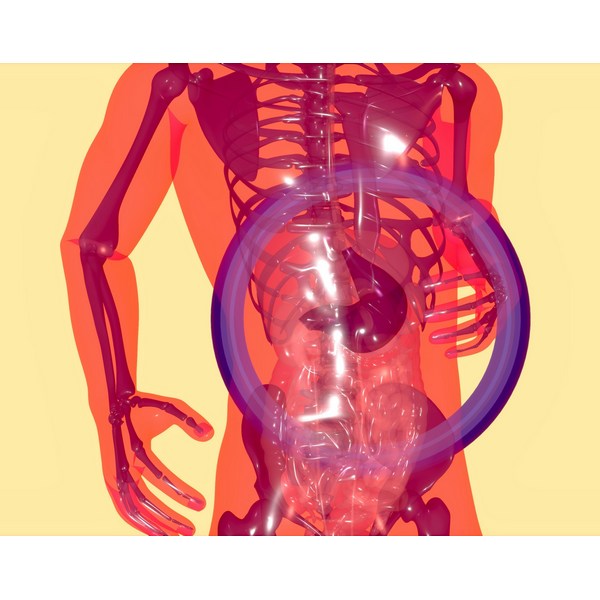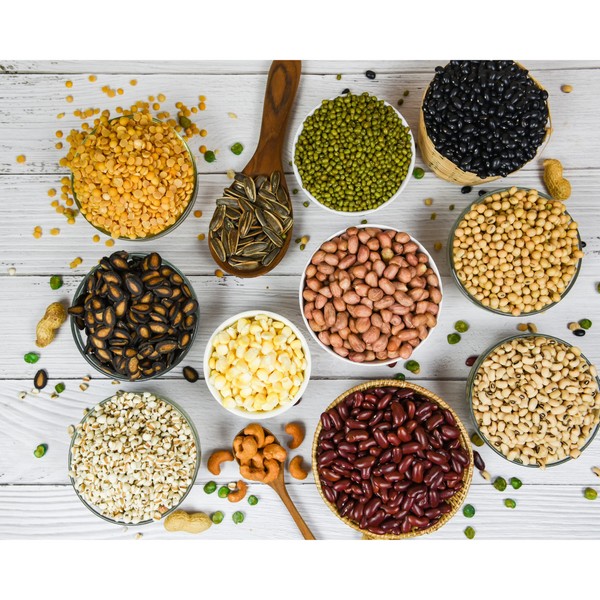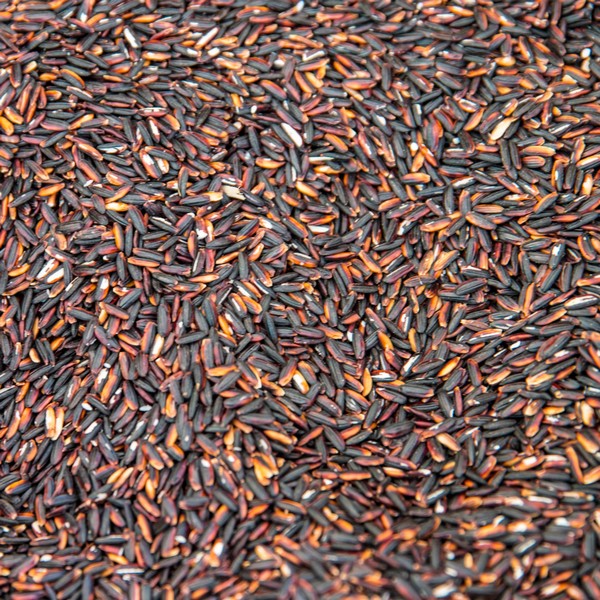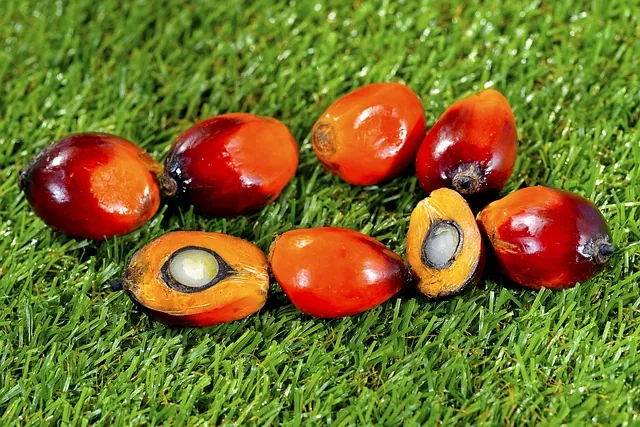Key Takeaways
- CLA is a type of fatty acid found primarily in animal products like beef and dairy.
- Known for potential benefits such as weight management, improved body composition, and enhanced immune function.
- CLA supplements are popular, but the efficacy and safety of high doses are debated.
- The balance between benefits and risks of CLA supplementation varies depending on the individual.
- Dietary sources of CLA are generally safer and provide additional nutrients compared to supplements.
Introduction
Conjugated Linoleic Acid (CLA) is a naturally occurring fatty acid found in various animal products, particularly beef and dairy.
It has garnered attention for its potential health benefits, including weight management, muscle growth, and immune function enhancement.
What is Conjugated Linoleic Acid (CLA)?
CLA refers to a group of fatty acid isomers derived from linoleic acid, an essential omega-6 fatty acid.
The unique arrangement of double bonds distinguishes CLA from other fatty acids. These isomers have different biological activities, with some believed to offer more health benefits than others.
Health Benefits of CLA

Weight Management and Fat Loss
Several studies suggest that CLA can aid in reducing body fat. It is thought to influence fat metabolism by promoting fat breakdown and inhibiting fat storage.
This makes it a popular supplement among those seeking to manage their weight.
Muscle Mass and Body Composition
CLA may also help in improving body composition by increasing lean muscle mass. Some research indicates that it can support muscle growth, especially when combined with resistance training, making it appealing to athletes and fitness enthusiasts.
Immune Function and Anti-inflammatory Properties
CLA has shown potential in enhancing immune function. It may modulate immune responses and reduce inflammation, contributing to overall health and well-being.
Other Potential Benefits
- Cardiovascular Health: CLA might help in managing cholesterol levels and promoting heart health.
- Cancer Prevention: Some studies suggest anti-carcinogenic properties, although more research is needed.
- Blood Sugar Regulation: CLA may assist in maintaining healthy blood sugar levels, beneficial for those with insulin resistance.
Sources of CLA

CLA in Diets
CLA is abundant in low-carb, ketogenic, and carnivore diets, providing a source of healthy fats.
Compared to plant-based diets, which lack CLA, animal-based diets offer this beneficial fatty acid naturally.
High-CLA foods include grass-fed beef, lamb, and dairy products. Grass-fed animals tend to have higher CLA levels compared to grain-fed counterparts.
Eating these foods ensures a natural and safe intake of CLA along with other essential nutrients.
CLA Supplements: What You Need to Know
CLA supplements are widely available and often marketed for weight loss and muscle building.
Recommended doses vary, but typically range from 3 to 6 grams per day. However, the benefits of CLA supplements compared to natural dietary sources remain a topic of debate.
Potential Risks and Side Effects
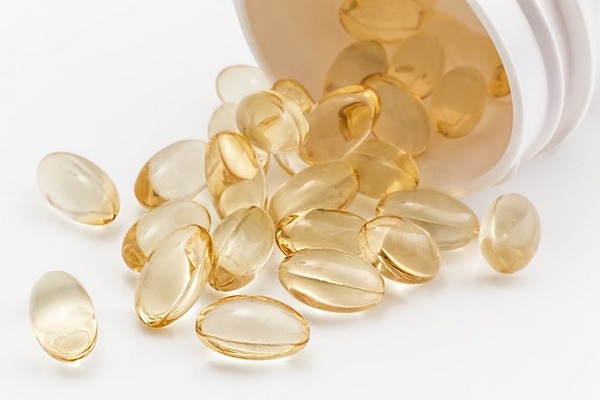
While CLA is generally considered safe, high-dose supplementation can pose risks. Some potential side effects include:
- Insulin Resistance: High doses may negatively impact insulin sensitivity.
- Increased Inflammation: Contrary to its anti-inflammatory properties, excessive CLA can lead to higher inflammatory markers.
- Gastrointestinal Issues: Some individuals report digestive discomfort with CLA supplements.
People with underlying health conditions should consult a healthcare provider before starting CLA supplements.
Conclusion
CLA offers various potential health benefits, particularly in weight management, muscle growth, and immune function. However, it’s best to obtain CLA from natural food sources like grass-fed beef and dairy, as these provide additional nutrients and have fewer risks compared to supplements. Considering both the benefits and potential side effects, individuals should approach CLA supplementation cautiously and prioritize dietary sources.
FAQs
What foods are highest in CLA?
Grass-fed beef, lamb, and dairy products are among the richest natural sources of CLA.
Is CLA safe to take as a supplement?
While generally considered safe in moderate doses, high-dose supplementation can have potential risks and side effects.
How does CLA help with fat loss?
CLA may influence fat metabolism, leading to reduced body fat, particularly in overweight individuals.
Can CLA improve muscle mass?
Some studies suggest that CLA can help maintain or increase lean muscle mass when combined with resistance training.
Should I get CLA from food or supplements?
It’s generally recommended to obtain CLA from natural food sources, as they provide additional nutrients and have a lower risk of side effects compared to supplements.
Research
Asbaghi, O., Shimi, G., Naseri, K., Saadati, S., Kelishadi, M.R., Doaei, S. and Haghighat, N., 2022. The effects of conjugated linoleic acid supplementation on blood pressure and endothelial function in adults: A systematic review and dose-response meta-analysis. European Journal of Pharmacology, [online] 931, p.175162.
https://doi.org/10.1016/j.ejphar.2022.175162.
Asbaghi, O., Ashtary-larky, D., Naseri, K., Saadati, S., Zamani, M., Rezaei Kelishadi, M., Nadery, M., Doaei, S. and Haghighat, N., 2022. The effects of conjugated linoleic acid supplementation on lipid profile in adults: A systematic review and dose–response meta-analysis. *Frontiers in Nutrition*, [online] 9. https://doi.org/10.3389/fnut.2022.953012.
Asbaghi, O., Shimi, G., Hosseini Oskouie, F., Naseri, K., Bagheri, R., Ashtary-Larky, D., Nordvall, M., Rastgoo, S., Zamani, M. and Wong, A., 2023. The effects of conjugated linoleic acid supplementation on anthropometrics and body composition indices in adults: a systematic review and dose–response meta-analysis. *British Journal of Nutrition*, [online] 131(3), pp.406–428. https://doi.org/10.1017/s0007114523001861.
Calderon Moreno, R., Correa, R., Oberg, A. S., & Papatheodorou, S. (2019). SUN-065 Effects of Conjugated Linoleic Acid (CLA) on Insulin Resistance and BMI in Subjects with and without the Metabolic Syndrome: A Systematic Review and Meta-Analysis. *Journal of the Endocrine Society*, 3(Supplement_1). https://doi.org/10.1210/js.2019-SUN-065.
Derakhshande-Rishehri, S.-M., Mansourian, M., Kelishadi, R. and Heidari-Beni, M., 2014. Association of foods enriched in conjugated linoleic acid (CLA) and CLA supplements with lipid profile in human studies: a systematic review and meta-analysis. *Public Health Nutrition*, [online] 18(11), pp.2041–2054. https://doi.org/10.1017/s1368980014002262.
Dilzer, A. and Park, Y., 2012. Implication of Conjugated Linoleic Acid (CLA) in Human Health. *Critical Reviews in Food Science and Nutrition*, [online] 52(6), pp.488–513. https://doi.org/10.1080/10408398.2010.501409.
Ghodoosi, N., Rasaei, N., Goudarzi, K., Hashemzadeh, M., Dolatshahi, S., Omran, H.S., Amirani, N., Ashtary-larky, D., Shimi, G. and Asbaghi, O., 2023. The effects of conjugated linoleic acid supplementation on glycemic control, adipokines, cytokines, malondialdehyde and liver function enzymes in patients at risk of cardiovascular disease: a GRADE-assessed systematic review and dose–response meta-analysis. Nutrition Journal, [online] 22(1).
https://doi.org/10.1186/s12937-023-00876-3.
Hagdallah, H., Elyse Ireland, H. and Williams, J., 2020. Conjugated Linoleic Acid (CLA) Effect on Body Weight and Body Composition in Women (Systematic Review and Meta-Analysis). *Proceedings of the Nutrition Society*, [online] 79(OCE2). https://doi.org/10.1017/s0029665120002104.
Haghighatdoost, F. and Hariri, M., 2018. Effect of Conjugated Linoleic Acid Supplementation on Serum Leptin Concentration: A Systematic Review and Meta-Analysis. *Endocrine, Metabolic & Immune Disorders - Drug Targets*, [online] 18(3), pp.185–193. https://doi.org/10.2174/1871530318666171207143254.
Haghighat, N., Shimi, G., Shiraseb, F., Karbasi, A., Nadery, M., Ashtary-larky, D., Zamani, M. and Asbaghi, O., 2022. The effects of conjugated linoleic acid supplementation on liver function enzymes and malondialdehyde in adults: A GRADE-assessed systematic review and dose-response meta-analysis. Pharmacological Research, [online] 186, p.106518.
https://doi.org/10.1016/j.phrs.2022.106518.
Kim, B., Lim, H.R., Lee, H., Lee, H., Kang, W. and Kim, E., 2016. The effects of conjugated linoleic acid (CLA) on metabolic syndrome patients: A systematic review and meta-analysis. *Journal of Functional Foods*, [online] 25, pp.588–598. https://doi.org/10.1016/j.jff.2016.07.010.
Kim, Y., Kim, J., Whang, K. and Park, Y., 2016. Impact of Conjugated Linoleic Acid (CLA) on Skeletal Muscle Metabolism. *Lipids*, [online] 51(2), pp.159–178. https://doi.org/10.1007/s11745-015-4115-8.
Lehnen, T.E., da Silva, M.R., Camacho, A., Marcadenti, A. and Lehnen, A.M., 2015. A review on effects of conjugated linoleic fatty acid (CLA) upon body composition and energetic metabolism. *Journal of the International Society of Sports Nutrition*, [online] 12(1). https://doi.org/10.1186/s12970-015-0097-4.
Liang, C.-W., Cheng, H.-Y., Lee, Y.-H., Liou, T.-H., Liao, C.-D. and Huang, S.-W., 2022. Effects of conjugated linoleic acid and exercise on body composition and obesity: a systematic review and meta-analysis. *Nutrition Reviews*, [online] 81(4), pp.397–415. https://doi.org/10.1093/nutrit/nuac060.
Mazidi, M., Karimi, E., Rezaie, P., & Ferns, G. A. (2017). Effects of conjugated linoleic acid supplementation on serum C-reactive protein: A systematic review and meta-analysis of randomized controlled trials. *Cardiovascular Therapeutics*, 35(6), e12275. https://doi.org/10.1111/1755-5922.12275.
Mohammadi-Sartang, M., Sohrabi, Z., Esmaeilinezhad, Z., Aqaeinezhad R, S. and Jalilpiran, Y., 2018. Effect of Conjugated Linoleic Acid on Leptin Level: A Systematic Review and Meta-Analysis of Randomized Controlled Trials. *Hormone and Metabolic Research*, [online] 50(02), pp.106–116. https://doi.org/10.1055/s-0044-100041.
Morvaridzadeh, M., Estêvão, M.D., Morvaridi, M., Belančić, A., Mohammadi, S., Hassani, M., Heshmati, J. and Ziaei, S., 2022. The effect of Conjugated Linoleic Acid intake on oxidative stress parameters and antioxidant enzymes: A systematic review and meta-analysis of randomized clinical trials. *Prostaglandins & Other Lipid Mediators*, [online] 163, p.106666. https://doi.org/10.1016/j.prostaglandins.2022.106666.
Rahman, M.M., Halade, G.V., El Jamali, A. and Fernandes, G., 2009. Conjugated linoleic acid (CLA) prevents age-associated skeletal muscle loss. *Biochemical and Biophysical Research Communications*, [online] 383(4), pp.513–518. https://doi.org/10.1016/j.bbrc.2009.04.071.
Rastgoo, S., Shimi, G., Shiraseb, F., Karbasi, A., Yousefi, M., Golalipour, E., Asbaghi, O., & Zamani, M. (2023). The effects of conjugated linoleic acid supplementation on inflammatory cytokines and adipokines in adults: A GRADE-assessed systematic review and dose–response meta-analysis. *Frontiers in Immunology*, 14, 1092077. https://doi.org/10.3389/fimmu.2023.1092077.
Suksatan, W., Putera, H.D., Abdulkadhim, A.H., Hammid, A.T., Ismailov, J.A., Jannat, B., Parvizi, R. and Izadi, F., 2022. The effect of conjugated linoleic acid supplementation on oxidative stress markers: A systematic review and meta-analysis of randomized controlled trials. *Clinical Nutrition ESPEN*, [online] 49, pp.121–128. https://doi.org/10.1016/j.clnesp.2022.04.004.
Tarnopolsky, M., Zimmer, A., Paikin, J., Safdar, A., Aboud, A., Pearce, E., Roy, B., & Doherty, T. (2007). Creatine Monohydrate and Conjugated Linoleic Acid Improve Strength and Body Composition Following Resistance Exercise in Older Adults. *PLOS ONE*, 2(10), e991. https://doi.org/10.1371/journal.pone.0000991.
Whigham, L.D., Watras, A.C. and Schoeller, D.A., 2007. Efficacy of conjugated linoleic acid for reducing fat mass: a meta-analysis in humans. *The American Journal of Clinical Nutrition*, [online] 85(5), pp.1203–1211. https://doi.org/10.1093/ajcn/85.5.1203.
How Cod Liver Oil Can Transform Your Health and Wellness
Cod liver oil has been used for centuries as a natural remedy for various health conditions. Packed with essential nutrients and fatty acids, cod liver…
Healthy Fat: is Butter Better?
Key Takeaways Saturated fats, like those found in butter, may not be as harmful as once thought and can be part of a healthy diet….
Benefits of Sea Moss Explained
Key Takeaways Rich in Nutrients: Sea moss is packed with essential vitamins, minerals, and antioxidants, supporting overall health and wellness. Supports Immune Function: Its high…
Protein: You probably need more
Key Takeaways Protein is needed for building and repairing body tissues. It supports muscle growth, immune function, and hormone production. Bioavailable sources of protein include…
Increase GLP-1 Agonists Naturally
Key Takeaways: GLP-1 agonists regulate appetite, insulin production, and blood sugar levels. Regular exercise and quality sleep maintain optimal GLP-1 levels. High-protein, low-carb diets effectively…
Benefits of Nutritional Yeast
Key Takeaways Nutritional yeast is a rich source of vitamins and minerals. It supports immune function and promotes skin health. Its cheesy flavor makes it…
Postbiotics: What They Are and Why They Are Important
Key Takeaways Postbiotics 101: They’re beneficial by-products from probiotics that consume prebiotics Boosts Immunity: Postbiotics sharpen your immune system, helping fight off pathogens and reducing…
Trimethylglycine TMG: Betaine Anhydrous Explained
Key Takeaways Betaine Anhydrous (TMG) is a compound found naturally in various foods and offers several health benefits. TMG supports liver health by reducing fatty…
Berberine Has 11 More Incredible Benefits Than You Thought
Berberine is a compound found in several plants that has been used for centuries in traditional Chinese medicine and Ayurveda. It has recently gained popularity…
11 Electrifying Health Benefits of Trace Minerals
What are Trace Minerals?The Major Roles of Trace MineralsSources of Trace MineralsDeficiencies in Trace MineralsThe Impact of Trace Minerals on Specific Health ConditionsFrequently Asked Questions…
5-HTP: Natural Ways to Boost Serotonin and Improve Mood
Key Takeaways: 5-HTP is a natural compound that helps boost serotonin levels in the brain. It can support mood regulation, sleep improvement, and stress reduction….
Cholesterol Misconceptions: Separating Fact from Fiction
Key Takeaways: High inflammation and blood pressure are major risk factors for heart disease. Cholesterol is vital for hormone production, cell membrane structure, and digestion,…
Boron: Benefits of a Lesser-Known Mineral
Key Takeaways Boron is a trace mineral with significant health benefits. It supports brain function, bone health, and hormonal balance. Understanding boron’s role can improve…
Magnesium: Better Sleep, Stress Relief and More
TUDCA Benefits for Health
Key Takeaways TUDCA promotes liver health, aiding cell protection and repair. Enhances digestion by improving bile flow and supporting gut health. May protect brain health…
Silica: for Healthier Skin, Hair, and Nails
Eggs: A Comprehensive Guide
Key Highlights Eggs are a nutritional powerhouse, containing all the essential vitamins and minerals needed for overall health. Vital role in a balanced diet, providing…
How Collagen Supports Healthy Skin, Joints, and More
Key Takeaways Collagen is the most abundant protein in the body, supporting the structure of skin, bones, and connective tissues. It helps maintain skin elasticity,…
Bee Pollen: Nature’s Secret Superfood
Key Takeaways Bee pollen is packed with essential nutrients and offers numerous health benefits. It supports immune function, boosts energy, and promotes overall well-being. Adding…
L-Carnitine: Benefits, Dosage, and Side Effects
Key Takeaways L-Carnitine supports fat metabolism and energy production. Benefits include enhanced exercise performance and improved heart health. Proper dosing minimizes potential side effects. Understanding…
Grains & Legumes Secretly Harming Your Health? Find Out Now!
Key Takeaways: – Grains and legumes contain antinutrients like lectins and phytic acid, which can interfere with nutrient absorption. – These foods may trigger digestive…
13 Most Dangerous Foods Revealed
Key Highlights Fugu, or pufferfish, is one of the most poisonous foods in the world, with its organs containing a neurotoxin that can paralyze motor…
Tallow: Benefits, Uses, and Nutrition
Key Takeaways: Tallow is a nutrient-rich animal fat with many practical uses. It contains valuable vitamins such as A, D, E, and K. Tallow is…
Actual Superfoods: Real Foods You Should Be Eating
Key Takeaways Superfoods are nutrient-dense foods, offering essential vitamins, minerals, and fats. Prioritize high-quality sources for optimal nutrition. They support overall health, boost energy, and…
How Stabilized Rice Bran Supports Digestive & Heart Health
Key Takeaways – Stabilized rice bran is a nutrient-rich source of vitamins, minerals, and antioxidants. – The stabilization process prevents rancidity, making it a long-lasting…
Zinc Supplements: Risks and Dangers
Key Takeaways Zinc supports immunity, wound healing, and cell growth. High zinc supplement doses can cause health problems. Always consult a healthcare provider before taking…
CoQ10: What Is It and Why Is It Important?
Key Takeaways CoQ10 (Coenzyme Q10) is an antioxidant produced by the body, essential for energy production in cells. Levels of CoQ10 naturally decrease with age…
Keto Diet 101: A Complete Beginner’s Guide
Key Highlights The ketogenic diet is a low-carb, high-fat diet that can lead to weight loss and has many health benefits. By reducing carbohydrate intake…
Vitamin E Complex
Key Takeaways Vitamin E is a powerful antioxidant that protects cells from oxidative damage, reducing the risk of chronic diseases. The vitamin E complex includes…
ALA vs. DHA & EPA Omega-3: Why Source Matters
Key Takeaways ALA (Alpha-Linolenic Acid) is found in flaxseeds, chia seeds, and walnuts, but converts poorly to DHA and EPA. DHA and EPA are critical…
Carnivore Diet: Benefits, Risks, Food List & More
Key Takeaways The carnivore diet is a keto diet that only allows for animal-based foods, and has potential health benefits. Tips for success include hydrating,…
Taurine: The Mighty Amino Acid for Optimal Health
Key Takeaways Taurine supports heart health, regulates blood pressure, and reduces oxidative stress. Essential for muscle function, brain health, and cognitive function. Aids in insulin…
Spirulina: Health Benefits and Uses
Key Takeaways Spirulina boosts immune function with its high nutrient content and antioxidant properties. Rich in proteins and essential vitamins, enhances overall nutrition. Helps reduce…
Red Palm Oil: Unveiling The Potent Health Benefits
Struggling to find the right oil for your health and kitchen? Red palm oil is packed with nutrients that might just be what you need….
Creatine Myths Debunked: Separating Fact from Fiction
Key Takeaways Common myths about creatine, such as it causing kidney damage, weight gain, and being a steroid, are widespread but unsupported by scientific evidence….
L-Glutamine and Gut Health: Benefits and Side Effects
Key Takeaways L-Glutamine is essential for gut health. Benefits include improved digestion and reduced inflammation. Potential side effects are rare but can occur in high…
Medium Chain Triglycerides (MCTs): Uncovering 5 Health Benefits
This potent, natural source of energy has gained considerable attention in recent years for its impressive array of benefits. MCT oil is a versatile addition…
The Impact of Ultra-Processed Foods on Your Wellbeing
Every bite we take is a step toward either wellness or illness. In our fast-paced world, ultra-processed foods have become a staple, silently shaping our…
Is Eating Sugar Really That Bad For Your Health?
Should You Really Be Concerned? In short, YES! Thank you, that’s all folks, and do have a good evening. Seriously though, extensive research has established…
Iron Overload: Symptoms & Prevention Tips
Key Takeaways: Iron overload happens when the body absorbs excessive iron, which can damage organs. Common symptoms include fatigue, joint pain, and skin changes. Early…
Liver: 5 Surprising Benefits Backed by Science
Hold on! Don’t run away! You need to read this. Liver is a highly nutritious organ meat that is often overlooked in modern diets. Packed…
8 Key Signs of Nutrient Deficiency
Key Takeaways Magnesium: A multitasker that aids in over 300 biochemical reactions in the body. Copper: Supports neurological function, cardiovascular and immune system health, iron…
Do This! The Ultimate Guide to Fasting Safely and Effectively
In our increasingly busy lives, finding time to take care of our bodies can often take a backseat. One method that has gained attention recently…
5 Major Benefits of Omega-3 Fatty Acids
Key Takeaways Omega-3 fatty acids support heart health by reducing triglycerides and lowering blood pressure. They play an important role in brain function and development,…
What You Need to Know About Salt and Your Health
Table of ContentsThe Health Benefits of Unrefined Sea SaltElectrolyte BalanceMineral ContentImproved HydrationBoosted Energy LevelsImmune SupportImproved DigestionBalanced pH LevelsReduced Water RetentionHeart Health SupportStronger Bones and TeethEnhanced…
Whole Food Vitamin C Complex: Expert Tips for Health
Key Highlights Whole food vitamin C complex is essential for a strong immune system and overall health. Unlike synthetic ascorbic acid, whole food vitamin C…
Vitamin A (Retinol): Essential Nutrient for Health
Key Takeaways: Natural Vitamin A, also known as Retinol, is crucial for vision, immune function, and skin health. Retinol is essential for healthy vision, particularly…
Copper: Little-Known Health Benefits
Key Takeaways Copper is an essential trace mineral with benefits, including ceruloplasmin production, energy production and antioxidant properties. Copper is critical for brain health by…
Calcium Supplements: What You Need to Know
Key Takeaways Calcium supplements have been linked to heart disease and kidney stones. Excess calcium from supplements can lead to imbalances and health issues. Natural…
Potassium: Benefits & Sources
Key Takeaways Potassium is essential for regulating fluid balance, nerve signals, and muscle function. It supports heart health and helps maintain proper blood pressure. Adequate…
6 Best Natural Ways to Manage Your Blood Sugar: A Quick & Easy Guide
1. Intermittent fasting2. Exercise3. Dietary fiber4. Sleep5. Weight loss6. SupplementationBioclinic NaturalsPGX BiotiquestSugar Shift Every time you eat it, it’s plotting something sinister. Sugar isn’t as…
Allulose: The Best Sugar Alternative
Key Takeaways Allulose is a low-calorie sweetener found naturally in some fruits. It does not raise blood sugar levels, making it suitable for diabetics. Allulose…
Natural Treatment for Irritable Bowel Syndrome (IBS): Effective Remedies Explored
Understanding IBSSymptoms of IBSRole of Diet in IBSNatural Remedies for IBSSupplements for IBSRole of Probiotics in IBSFrequently Asked Questions Understanding IBS Irritable Bowel Syndrome (IBS)…


